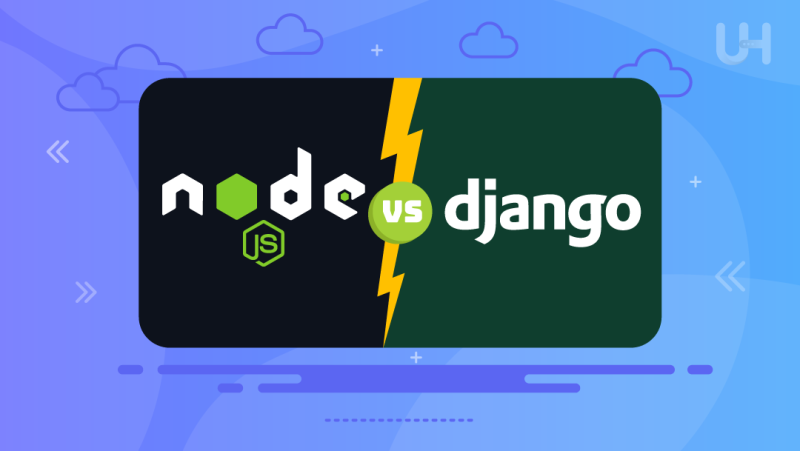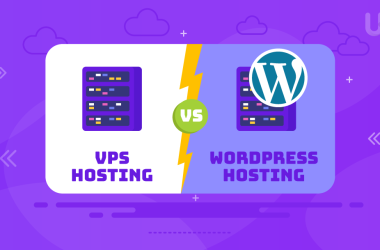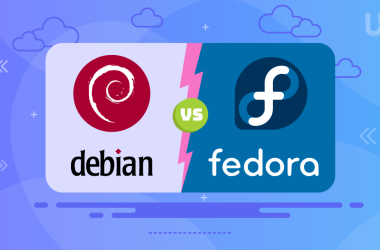Sometimes, choosing a backend technology for your subsequent web application development is confusing, with so many options on the table. The comparison that always surfaces in debates and lists nowadays is Node.js vs Django. Both are compelling web development frameworks but for different kinds of projects and developer nurturements.
This article is determined to compare Node.js and Django in detail, giving you a better view of their core features and differences and making an educated choice about the proper one for your development needs.
What Is Node.js?
Node.js is an open-source, cross-platform JavaScript runtime environment that executes JavaScript code outside a web browser. Ryan Dahl developed Node.js in 2009. Its scripting is on Chrome’s V8 JavaScript engine, thus enabling it to compile JavaScript directly into native machine code. The consequence is that it allows Node.js to have a one-of-a-kind performance and effectiveness, especially adapting it to scalable network applications. It is particularly well suited for creating date-centric, real-time applications that run on multi-device distributions, such as online gaming platforms, chat applications, and live streaming services. Node.js has been set up with an event-driven architecture and a non-blocking I/O model.

The philosophy of the Node.js design is to optimize throughput and scalability in web applications, supporting very high data exchange volumes with minimal delays. Node.js helps developers build highly responsive applications capable of handling a plethora of real-time data without any substantial drop in performance through asynchronous events. This makes it ideal for environments demanding quick data updates and real-time user interactions. Moreover, its lightweight nature means that applications stay nimble and viable despite high traffic load. It is significant for contemporary applications, expected to serve thousands, if not millions, of users concurrently.
What Is Django?
Django is a high-level web framework for the Python programming language with the goal of rapid development and a clean, pragmatic design. The development of Django began in the fall of 2003, and its goal was to develop a high-level, clean web framework for meeting the deadlines of the Lawrence Journal-World newspaper. Its philosophy is core to process automation, meaning that developers should not write repetitive code but strictly follow the DRY principle, the expanded abbreviation here being “Don’t Repeat Yourself.”. This framework is valuable during the development of complex sites based on a database approach. Its strong points include A core philosophy of being “batteries-included”, An admin panel Database interfaces and an object-relational mapping tool.
This inclusive approach guarantees that developers have instantaneous access to all the necessary tools and can rapidly create robust applications. Django has various integrated components to help in web development, from content management and user authentication to messaging. With that taken care of, developers can primarily focus on designing their applications. Setup and configuration tasks are no longer a distraction. Moreover, Django focuses strongly on reusability and plug-and-play components. This means Django supports efficiency and scalability in development. Two main factors developers look for are efficiency and scalability. In constructing web applications, developers seek high-quality, effective and quick solutions.
Elevate Your Django Experience!
Considering Django for your next project? Explore UltaHost’s Django hosting solutions to leverage fast deployment and robust support, ensuring optimal performance for your web applications. Start now!
Difference Between django vs node.js
The best way to compare Node.js and Django is to structure the differences so developers can find out which framework is better depending on the aspects of their projects. The detailed comparison is shown below:
| Feature | Node.js | Django |
| Programming Language | JavaScript | Python |
| Architecture | Event-driven, non-blocking I/O | Model-View-Template (MVT) |
| Best Use Cases | Real-time applications, microservices, I/O heavy apps | Database-driven applications, CMS, rapid development |
| Performance | High performance in handling I/O bound, real-time data | Optimized for CPU-intensive operations |
| Development Philosophy | Minimalist, flexibility with a focus on customization | “Batteries-included,” offering a holistic development suite |
| Scalability | Excellent with asynchronous processing | Good, with synchronous processing but supports async |
| Community and Ecosystem | Large, with many libraries for various needs | Extensive, with robust support for numerous extensions |
| Learning Curve | Steeper due to asynchronous programming and JavaScript nuances | Generally smoother, thanks to Python’s readability and simplicity |
| Built-in Features | Fewer prioritizes a lean core with optional extensions | Extensive built-in features like ORM, admin panel |
Analysis
Node.js is written in JavaScript, which makes it a server-side development language and is recommended for developers who have experienced potential in the JavaScript framework. It follows an event-driven, non-blocking architecture suitable for real-time applications like chat or live updates. Node.js is very effective at building scalable network applications. These applications can support large amounts of traffic. They can also maintain a large number of clients connected simultaneously. This helps keep interactions swift.
On the other hand, Django is written in Python, which is well known for its readable and writable significance. It takes a “batteries-included” approach in that it has many things brought in by default, which significantly helps the development process. This makes Django ideally suited for projects that need fast completion and deployment. It is particularly well-suited for applications that require a lot of database interaction or heavy administrative backends.
Which One Is Better? Django or Node.js
The decision between node js and django should be guided by the project’s specific needs, the team’s expertise, and the project requirements. Each framework offers unique strengths that cater to different types of applications and developer backgrounds.
- Node.js is well-suited for projects with high scalability and high-performance requirements. It has an event-driven, non-blocking I/O architecture ideally suited for managing asynchronous processes and real-time data. So, Node.js is the fitting choice for online gaming portals, collaborative tools, and chat apps. The ability to handle numerous simultaneous connections makes Node.js excellent for developing applications that require high interactivity and real-time capabilities.
- Django, on the other hand, is the most suitable framework for developers who intend to work using an easy and expressive method for rapid development. In contrast, Django rapidly creates “inclusivity” features to create a highly complex, database-dependent journalistic platform, e-commerce site, and web portal. It arrives with comprehensive stack tools right out of the box. This allows developers to focus entirely on building unique features, as high security is provided.
The choice ultimately reflects the project requirements. It also depends on the team’s comfort level with Python or Javascript. Additionally, the expected features of the application are a factor in the decision. So, under the right and circumstances. Each framework could be considered the superior choice.
Hosting Services For Node js and Django
Another factor to consider when deciding whether to develop server-side features using node.js vs django is server specifications. VPS stands for Virtual Private Server hosting, which is a balance between cost and performance. It works incredibly well for applications that have outgrown shared hosting but do not yet require a dedicated server.
Shared web hosting is a hosting environment where hundreds of websites share the resources of one single server. Although it is inexpensive, shared hosting limits access to server resources, which further slows down response times and might decrease performance when traffic is at its peak. By and large, a shared hosting environment is not the one you would prefer for performance-sensitive applications to be built using Node.js or Django, especially applications requiring real-time processing.
Dedicated Hosting
A dedicated web hosting server package is where a website is assigned to its server, retaining complete control. This type of hosting applies to applications that are on a considerable scale and require vast resources and high data privacy. With dedicated servers, the resources are not shared by any other client, giving consistent performance and high-security measures essential for applications handling sensitive information.
Unlimited Bandwidth VPS
Unlimited Bandwidth VPS is somewhat in between shared and dedicated hosting. On the one hand, the server is shared with others; on the other hand, each site runs on its own with virtually allocated resources, just like on a dedicated server. This is very conducive for Node.js and Django applications, which strike a good balance between cost, control, and guaranteed flexibility.
Selecting the right VPS hosting can make a massive difference in the performance and security of your application is built with Node.js or Django. VPS hosting, with resources close to the dedicated level and additional support from the host, offers a maturing development environment and advanced data privacy and security measures.
Conclusion
In the Node.js vs Django debate, weaknesses and strengths can be weighed against each framework; the choice, however, depends greatly on the project’s requirements. Node.js offers great performance with its non-blocking nature and is apt for real-time data processing-requiring applications. Django is excellent when it comes to the development of feature-rich applications under stringent deadlines for developers who prefer a more structured environment. Depending on your project needs, either Node.js vs Django could be the right tools to develop an efficient, scalable, and solid application.
If you’re eager to explore the potential of Node.js in your web development projects, take the next step! Choose Ultahost to find powerful Node.js hosting solutions tailored to your needs.
FAQ
How does Node.js handle concurrency?
Node.js handles concurrency with a non-blocking, event-driven architecture.
What is Django’s architecture?
Django uses a Model-View-Template (MVT) architecture.
Can Django handle real-time applications?
Yes, Django can handle real-time applications with its support for asynchronous features.
What makes Node.js unique?
Node.js’s unique non-blocking I/O model is ideal for real-time and data-intensive applications.
What does “batteries-included” mean for Django?
This means that Django comes with many built-in features for common development needs.









